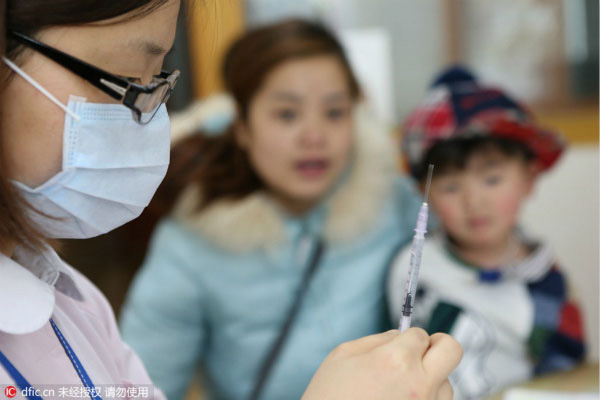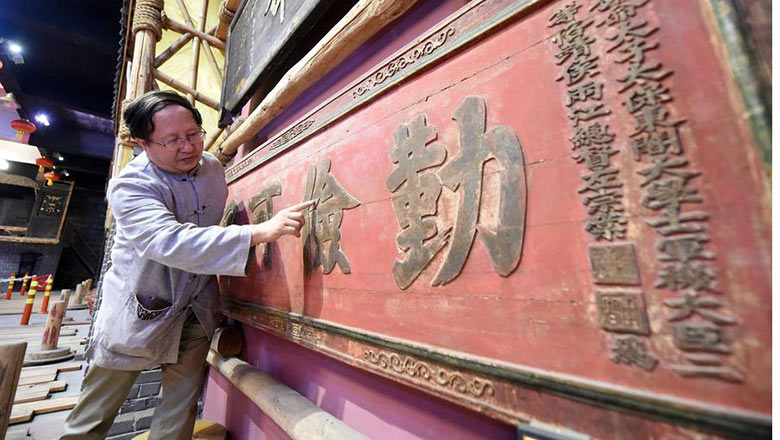Tightening vaccine control
Updated: 2016-05-23 07:40
(China Daily)
|
||||||||
 |
|
A Chinese medical worker prepares to vaccinate a young kid at a hospital in Shanghai, China, March 20, 2016. [Photo/IC] |
According to an announcement by the Supreme People's Procuratorate on Thursday, 125 people have been arrested for their involvement in the recent vaccine scandal, and 37 people are being investigated for crimes involving abuses of their official power.
The arrest of so many suspects across the country testifies to the significant and complicated nature of the vaccine scandal, which has caused grave public concerns over the safety of the country's vaccines.
The scandal exposed the long black "interest chain" in the production and sales of Type-II vaccines and revealed serious supervision loopholes in their distribution.
That so many suspects have been arrested in a single case reflects the importance the authorities have attached to the case and the intensity of their investigation.
In the wake of the vaccine scandal, China has accelerated efforts to build a long-term effective vaccine management mechanism. Coinciding with the investigations by multiple State departments, the State Council, China's Cabinet, announced in April revised regulations covering vaccines, which promote stricter management of their distribution.
According to the revised regulations, Type-II vaccines are now included in the national management system that previously only covered Type-I vaccines, which means they can only be purchased through the provincial-level trading platforms.
But this has not been enough to completely erase public concerns over vaccine safety.
That more than 100 suspects have been arrested for their involvement in the recent vaccine case reflects the difficulties involved in the supervision of vaccines.
China has less than 500 qualified personnel to supervise vaccines nationwide. The lack of staff means that even after a sound vaccine management mechanism is set up, how to eradicate the "dead zones" for supervision caused by understaffing is a problem that still needs to be tackled.
Only intensified vaccine supervision and management can help regain the public's confidence in domestic vaccines.
- Russia to build first cruise liner in 60 years
- LinkedIn, Airbnb match refugees with jobs, disaster survivors with rooms
- Duterte 'willing to improve ties' with Beijing
- Canadian PM to introduce transgender rights bill
- Hillary Clinton says her husband not to serve in her cabinet
- New York cake show designs fool your eyes

 China Daily, celebrating 35 years
China Daily, celebrating 35 years
 Six things you may not know about Grain Buds
Six things you may not know about Grain Buds
 China Beijing International High-tech Expo
China Beijing International High-tech Expo
 Highlights at Google I/O developers conference
Highlights at Google I/O developers conference
 Nation celebrates International Museum Day
Nation celebrates International Museum Day
 Body brushwork creates vivid animals
Body brushwork creates vivid animals
 Can you still recognize these cities?
Can you still recognize these cities?
 A private museum owner's devotion to cultural protection
A private museum owner's devotion to cultural protection
Most Viewed
Editor's Picks

|

|

|

|

|

|
Today's Top News
Liang avoids jail in shooting death
China's finance minister addresses ratings downgrade
Duke alumni visit Chinese Embassy
Marriott unlikely to top Anbang offer for Starwood: Observers
Chinese biopharma debuts on Nasdaq
What ends Jeb Bush's White House hopes
Investigation for Nicolas's campaign
Will US-ASEAN meeting be good for region?
US Weekly

|

|









